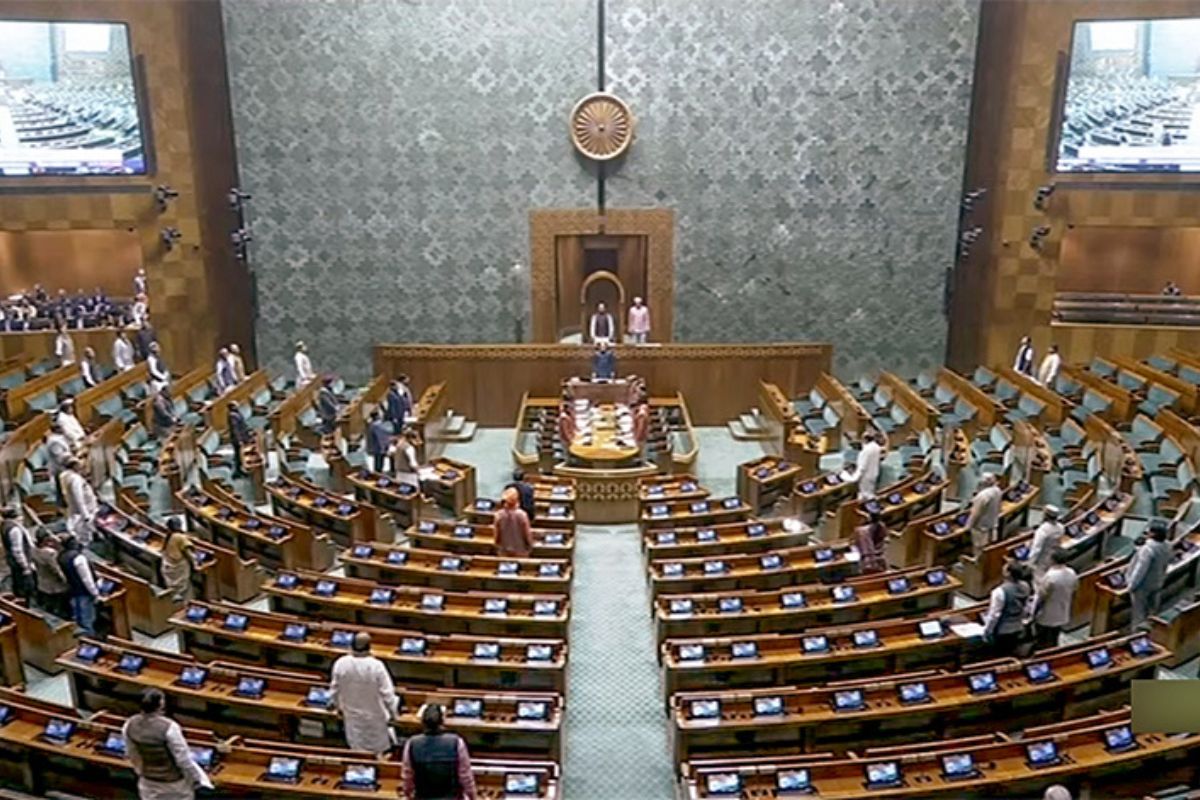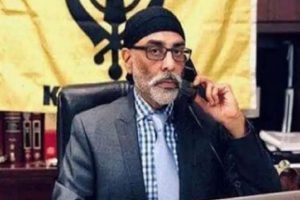The Winter Session of Parliament ended with the sine die adjournment of the two Houses on Friday without transacting any business amid escalating tensions between ruling NDA members and those on the Opposition benches over the Ambedkar issue.
Before the two Houses were adjourned, the two important bills relating to ‘One Nation, One Election’ were referred to a Joint Parliamentary Committee.
Advertisement
Union Home Minister Amit Shah’s remarks on Dr B R Ambedkar in the Rajya Sabha on Tuesday have triggered a storm with Opposition Members demanding an apology from him or his dismissal, leading to frequent disruptions, leading to frequent adjournment of the two Houses.
This morning, the Lok Sabha was adjourned sine die shortly after it began the proceedings, a day after a massive scuffle in the Parliament premises which resulted in injuries to two BJP MPs–Mukesh Rajput and Pratap Chandra Sarangi.
Law Minister Arjun Ram Meghwal today moved a motion that the Bills to further amend the Constitution of India, the Government of Union Territories Act, 1963, the Government of National Capital Territory of Delhi Act, 1991 and the Jammu and Kashmir Reorganisation Act, 2019 be referred to a JPC. The motion was approved by the House amid din.
The 27 Lok Sabha members on the JPC include P P Chaudhary, Dr C M Ramesh, Bansuri Swaraj, Anurag Singh Thakur, Bhartruhari Mahtab, Dr Sambit Patra, Anil Baluni, Dr Sanjay Jaiswal, Priyanka Gandhi Vadra, Manish Tewari, Sukhdeo Bhagat, Dharmendra Yadav, Chhotelal, Kalyan Banerjee, Anil Yeshwant Desai, Supriya Sule and Dr Shrikant Eknath Shinde. There are 12 members from the Rajya Sabha.
In order to constitute a sitting of the Joint Committee, the quorum will be one-third of the total number of members of the JPC. The Committee will submit its report to the Lok Sabha by the first day of the last week of the next session.
The Rajya Sabha was adjourned till 12 noon initially. After the House reconvened, Chairperson Jagdeep Dhankhar gave his valedictory remarks, and said the House functioned only for 43 hours and had 40 per cent productivity.
Mr Dhankhar said, ”The world watches our democracy, yet we fail our citizens through our conduct. These Parliamentary disruptions mock public trust and expectations.”
”As Parliamentarians we are drawing severe criticism from people of India. And rightfully so, these persistent disruptions are steadily eroding public trust in our democratic institutions,” he said, following which he adjourned the House sine die.
The last day of Parliament’s Winter Session saw protests from both INDIA Bloc and NDA MPs.
BJP lawmakers were protesting inside the Parliament Complex at Gandhi’s statue demanding action against Leader of the Opposition Rahul Gandhi for allegedly assaulting BJP MPs.
The Opposition MPs have taken out a protest rally from Vijay Chowk to Parliament, demanding an apology from Home Minister Amit Shah and his resignation as well for his remarks on B R Ambedkar in the Rajya Sabha.
Parliament functioning in the Winter session was marred by protests and counter-protests from both the opposition and treasury benches. Both the Houses held discussion on the 75th anniversary of adoption of the Constitution.
The session was marked by issues like Home Minister Amit Shah’s remarks on B R Ambedkar, the No-Confidence motion against Rajya Sabha Chairman Jagdeep Dhankhar, and Priyanka Gandhi Vadra’s debut in the Lok Sabha.
The session commenced on November 25, and remained disrupted throughout. The Opposition led by the Congress staged protests on various issues including their demand for a discussion on the US indictment of industrialist Gautam Adani. The government’s refusal to allow such a discussion led to Opposition’s demonstrations and walkouts, resulting in near washout of the proceedings.
The highlight of the session was the ‘One Nation, One Election’ Bill, which proposes simultaneous elections in the Lok Sabha and state Assemblies every five years, being referred to the JPC for further examination.
The no-confidence motion was moved by the Opposition against Rajya Sabha Chairman Dhankhar, citing alleged partisan behaviour. However, the motion was ultimately dismissed on procedural grounds, including the lack of a 14-day notice.











